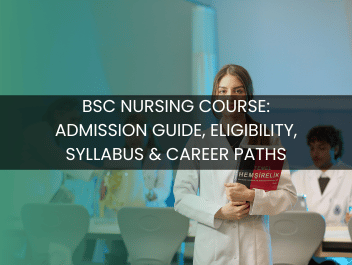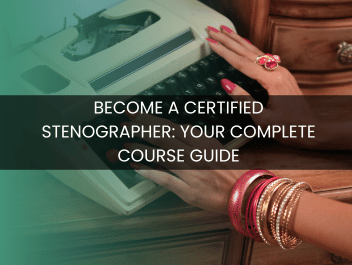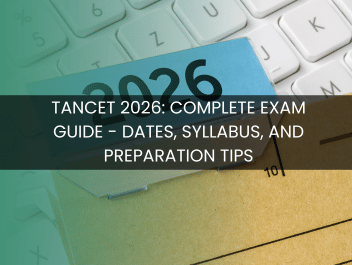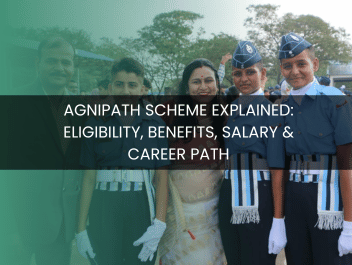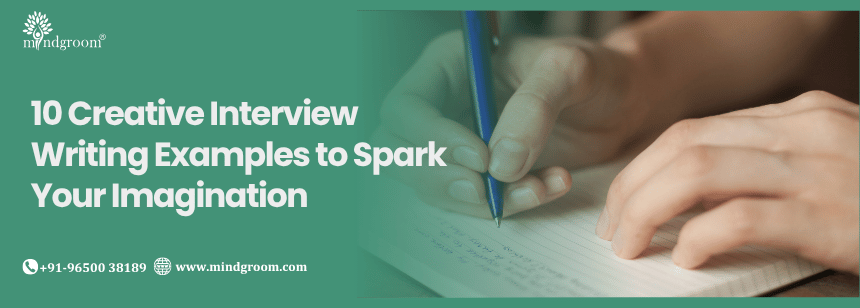
10 Creative Interview Writing Examples to Spark Your Imagination
Unlock the secrets to crafting compelling narratives with these 10 creative interview writing examples designed to ignite your imagination. Interview writing is a powerful storytelling mechanism that allows readers to delve into diverse perspectives and experiences. Whether you're a student or seasoned writer, understanding different styles such as narrative, thematic, and conversational interviews can illuminate your path to engaging content creation.
Interview writing not only informs but also captivates, making it an essential skill for storytellers and journalists alike. By exploring a variety of interview writing samples and techniques, you can elevate your prose to convey authenticity and depth. These examples provide a foundation that is both practical and inspirational for those seeking to hone their craft.
In this article, we'll dive into interview writing examples and samples, revealing techniques used in narrative, thematic, and conversational setups. From exploring student interests to career choices, these examples serve as a treasure trove of insight for anyone looking to enrich their writing skill set. Prepare to embark on a creative journey that will spark your imagination and enhance your interview writing prowess.
Table of Content
- 1. Introduction
- 2. What is Interview Writing?
- 3. Importance of Creative Interview Writing
- 4. Types of Creative Interview Writing Examples
- 5. Interview Writing Samples
- 6. Interview Writing Examples for Students
- 7. Tips for Writing Engaging Interviews
- 8. Conclusion
- 9. Call to Action: Share Your Own Interview Writing Experiences
Introduction
Introduction to Interview Writing Examples
Interview writing is a crucial skill. It bridges the gap between capturing insights from professionals and communicating them effectively. Let’s delve into interview writing examples to understand how to craft compelling narratives.
A well-written interview piece hinges on a structured interview process. Begin with common interview questions to set the tone. Mix open-ended questions with follow-up questions for depth. Reflect on skills like interpersonal and leadership skills as well as insights into company culture.
Sample interviews provide a window into a candidate's previous role and how it aligns with their current role. Use real-life examples from major projects or project management software to highlight professional growth and personal growth.
Table of Contents:
- Common Interview Questions
- Behavioral Interview Questions
- Writing Style Tips
- Insightful Interview Writing Sample
By understanding interview writing samples, aspiring writers can showcase the writing process effectively, helping to elevate your content in the hiring process and reflect positively on your professional experience in creative writing or other fields.
What is Interview Writing?
Interview writing is the art of transforming a verbal interview into a readable format. This process involves careful transcription of dialogue along with the inclusion of context and interpretation.
Key Aspects of Interview Writing:
- Interview Writing Examples: These illustrate how conversations are translated into text, showcasing style and structure.
- Interview Writing Sample: Represents a real-life transformation of spoken words into a polished narrative.
Formatting: Short paragraphs and lists improve readability.
Purpose: The writing captures the essence of the interviewee's insights, making it accessible to readers. It highlights key points discussed, ensuring clarity.
Skills Needed:
- Listening and Transcription: Accurately record what's said.
- Contextual Understanding: Present the conversation meaningfully.
- Writing Style: Maintain the speaker's voice while ensuring
readability.
- Keywords & SEO: Integrating keywords like "interview writing
examples" and "interview writing sample" can enhance
searchability.
Interview writing demands attention to detail and excellent writing skills to ensure the final product is both informative and engaging.
Importance of Creative Interview Writing
Creative interview writing is a critical skill in today’s job market. It is not just about listing your experiences, but showcasing your unique talents and how you fit into the company culture.
Key Aspects of Creative Interview Writing:
- Engagement: Creative writing captures the interviewer's attention. Use real-life examples and storytelling to make your experiences relatable.
- Expression: Demonstrating your interpersonal skills and leadership skills through creative writing sets you apart. Describe your proactive approach to challenges in previous roles and highlight your professional growth.
- Personalization: Tailor your interview writing sample to align with the current company’s values and goals. This shows your interest in the company and your dream job.
|
Element |
Benefits |
|
Storytelling |
Engages and makes an impact |
|
Personalization |
Aligns with company culture |
|
Expression |
Reflects personal and professional growth |
- Reflection: A well-crafted sample often includes reflections on major projects and personal growth, showcasing how your previous experience aligns with the hiring process.
Creative interview writing examples are key in leaving a lasting impression and increasing the conversion rate from interview to offer.
Types of Creative Interview Writing Examples
Creative interview writing examples play a pivotal role in showcasing your adaptability and creativity during the job application process. Each type has unique benefits, allowing you to present your skills and experiences in a way that aligns with the company culture and job role. Whether you're engaging in narrative, thematic, or conversational interview writing, the goal remains the same: to impress potential employers with a personalized and impactful presentation of your professional journey. The following sections delve into three primary types of interview writing samples, highlighting how each can effectively communicate your qualifications and aspirations.
Narrative Interviews
Narrative interviews focus on storytelling as a powerful tool to illustrate your career path. In this approach, you craft a story around your professional experience, emphasizing specific achievements and growth milestones. This writing style is beneficial because it naturally captures the interviewer's attention by weaving your experiences into a compelling narrative. You might recount a particular project that demonstrated your leadership skills or highlight how overcoming a major challenge contributed to your professional growth in a previous role. This method allows you to address common job interview questions through real-life examples, making your story relatable and memorable. Narrative interviews are effective in demonstrating your interpersonal skills and how you can fit into the current company’s values and culture.
Thematic Interviews
Thematic interviews organize your discussion around central themes related to the job and the company. This type of interview writing sample focuses on aligning your answers with specific themes such as innovation, teamwork, or problem-solving. By structuring your responses around these themes, you can effectively communicate your professional goals and previous experience that align with the job role. For example, you might highlight a theme of continuous learning, illustrating how professional and personal growth are important aspects of your career. This approach not only showcases your knowledge of the company's priorities but also demonstrates your proactive approach to meeting those expectations. Thematic interviews provide a structured way to present your experiences and skills, ensuring you cover all the areas the interviewer might be interested in.
Conversational Interviews
Conversational interviews adopt a more relaxed and interactive writing style, mimicking the flow of natural conversation. This approach encourages a dialogue with the interviewer rather than a monologue, inviting follow-up questions and open-ended discussions. It offers an opportunity to express genuine interest in the interview process and company culture, showing that you are a team player and eager to contribute to the current role. By engaging in a conversational exchange, you can provide positive feedback about the company, ask insightful questions, and express how your previous experience makes you a suitable candidate. This informal writing style fosters a connection with the interviewer, helping to build rapport and emphasize your interpersonal skills. Conversational interviews are particularly effective in environments that value creativity and a proactive approach.
Interview Writing Samples
Interview writing examples demonstrate various styles and approaches to crafting informative and engaging interviews. These samples not only help writers perfect their writing style but also enhance their understanding of different interview techniques. Effective interview writing captures the essence of the conversation and provides valuable insights to the readers. In this article, we will explore three distinct interview writing samples that offer unique perspectives and methodologies. Whether you are preparing for your dream job or simply refining your interview skills, these examples will guide you through the writing process, helping you excel in professional interviews.
Sample 1: Narrative Style
The narrative style in interview writing examples emphasizes storytelling to convey experiences and insights. This approach makes the interview engaging and relatable, allowing readers to immerse themselves in the narrative. Starting with an anecdote or real-life examples can draw readers in, providing context and depth to the interviewee's journey.
In a narrative interview writing sample, focus on crafting descriptive scenes that capture the interviewee's emotions and thoughts. This style is particularly effective in highlighting personal growth and professional experience. Natural transitions between questions help maintain a smooth flow, making the story cohesive. Open-ended questions can elicit detailed responses, providing a richer narrative.
The narrative style often concludes by tying individual stories to a broader theme or lesson, leaving the reader with lasting impressions. This approach is suitable for highlighting a person's journey, professional growth, or significant achievements in their current role or previous experience.
Sample 2: Thematic Approach
The thematic approach organizes interview content around central themes, providing a structured and coherent narrative. This style is ideal for interviews addressing complex topics or when exploring multiple aspects of an interviewee's experience.
In an interview writing example using the thematic approach, start by identifying key themes that will guide the conversation. These might include professional goals, company culture, or leadership skills. Each theme serves as a section, with a focused discussion that ties back to the interviewee's overall narrative.
Within each theme, use follow-up questions to delve deeper into the subject, offering insights into the interviewee's perspective and experiences. Real-life examples can support and illustrate key points, making the content more engaging and informative.
Conclude with a summary that reflects on the themes discussed, highlighting how they relate to the interviewee’s current role or aspirations. This method helps readers understand the broader implications of the interviewee's journey while maintaining a clear and organized structure.
Sample 3: Conversational Interview
The conversational style fosters an informal and dynamic interaction, capturing the natural flow of a dialogue. This interview writing sample resonates with readers by emphasizing authenticity and spontaneity.
Begin with an introduction that sets the tone and context, making the interviewee feel at ease. Allow the conversation to evolve naturally, with open-ended questions encouraging honest and unprepared responses. Conversational interviews often include digressions and personal anecdotes, adding depth and personality to the narrative.
Incorporate interpersonal skills throughout the conversation, ensuring a respectful and engaging exchange. This style is effective for revealing the interviewee's character, insights into the hiring process, and thoughts on company culture.
Wrap up the interview by summarizing major projects or ideas discussed, leaving the audience with positive feedback or a call to action. The conversational interview is an excellent choice for creating a relaxed and authentic narrative that engages readers and showcases genuine connections.
Interview Writing Examples for Students
Interview writing plays a crucial role in shaping a student's future endeavors. Effective interview writing helps students articulate their thoughts and aspirations clearly. It involves understanding the nuances of both career choices and personal interests. In this article, we delve into key interview writing examples for students, providing insight into crafting impactful interviews. The examples here will serve as templates, helping students navigate conversations about their career paths and extracurricular pursuits.
Sample 4: Student Interview on Career Choices
For students contemplating their career choices, interviews can be a poignant way to explore their passions and goals. This interview writing sample showcases a student's journey through understanding their professional aspirations. Beginning with the interview process, students learn to reflect on their previous roles, current company goals, and future ambitions. This conversation highlights real-life examples of integrating personal growth with career objectives.
In this interview, the student discusses their dream job and the professional experience they wish to gain. They respond to open-ended questions aimed at uncovering their leadership skills and interpersonal prowess. Follow-up questions address the student's proactive approach towards reaching their professional goals. This sample is a perfect guide for students who aim to align their academic pursuits with their career dreams, offering insight into common interview questions and the hiring process.
Sample 5: Student Interview about Extracurricular Activities
Extracurricular activities are a vital aspect of a student's life, offering opportunities for learning beyond the classroom. In this interview writing example, we explore how students can articulate their involvement in extracurriculars effectively. The student reflects on participation in activities that fostered professional growth, such as leadership roles in clubs or sports teams.
Questions in this interview focus on the student's ability to balance personal growth with team activities, highlighting their ability to work as a team player. Discussions revolve around how major projects undertaken during extracurriculars influenced their personal and professional development. Through this interview writing sample, students learn to express how extracurricular experiences shaped their current role in school and influenced their future career goals. This example proves invaluable for students looking to present a well-rounded profile during interviews, emphasizing their interpersonal skills and alignment with desired company culture.
Tips for Writing Engaging Interviews
Writing engaging interviews is a skill that can greatly enhance your content’s appeal. Whether you are a seasoned journalist or a budding writer, mastering the art of interviewing is crucial. From preparing well-researched questions to capturing the essence of your subject’s voice, the process involves several strategic steps. In this guide, we delve into interview writing examples and offer an interview writing sample that you can follow for guidance.
Research and Preparation
To craft a compelling interview, research and preparation are key. Understanding the background of the interviewee is vital. Start by identifying their current role and previous experience. Delve into any major projects they’ve been involved in. This information can provide you with a solid framework to develop insightful questions that resonate with the interviewee.
During your preparation, think about the common interview questions that align with the subject’s professional journey. Consider open-ended questions that allow for a deeper insight into their interpersonal skills and leadership skills. A proactive approach in your research can facilitate a more dynamic and informative conversation, reflecting positively on the interview writing sample you create.
Structuring Your Interview
The structure of your interview can determine the clarity and engagement level of your article. Begin with an introduction that sets the scene, providing context about the interviewee and the purpose of your discussion. This should naturally flow into the body, where you detail your conversation using real-life examples and follow-up questions to dig deeper into responses.
Conclude your interview with a summary that encapsulates key insights and introduces any personal or professional growth topics the interviewee shared. Using interview writing examples as references, ensure your structure maintains a smooth, logical flow. This methodical writing style can enhance reader engagement and improve conversion rates on your content.
Capturing Authentic Voices
Capturing authentic voices is crucial to the interview writing process. Strive to let the interviewee’s personality and language shine through your writing. This authenticity helps in building a connection with your readers, offering them a genuine glimpse into the subject’s world. During the interview process, ask open-ended questions to encourage detailed responses.
Reflect the company culture and the interviewee’s personal growth journey in your narrative. Real-life examples and positive feedback shared by the interviewee can be focal points. Pay attention to the interview writing examples that successfully showcase these elements. By doing so, you'll not only preserve the interviewee’s unique voice but also provide insightful content that ranks higher on search engines like Google.
By adhering to these strategies and leaning on comprehensive interview writing examples, you can craft interviews that are both engaging and informative. With a well-prepared, structured, and authentic approach, your interviews will not only captivate readers but also serve as an exemplary interview writing sample for others to learn from.
Conclusion
In conclusion, mastering interview writing serves as a vital skill in the professional world. Its ability to enhance both personal and professional growth by improving communication cannot be overstated. Whether you're crafting interview questions or answers, understanding real-life examples and previous experiences can impact the interview process positively. Here's a quick summary of key tips:
- Use Real-Life Examples: Reference your professional
experience and major projects to provide concrete examples.
- Practice Writing Samples: Draft interview writing samples that focus
on behavioral interview questions to refine your style.
- Consider the Company Culture: Tailor your responses to align with the
prospective company's values.
- Highlight Skills: Showcase leadership and interpersonal skills to
demonstrate you're a team player ready for your dream job.
- Prepare for Common Questions: Familiarize yourself with common job
interview questions to anticipate follow-up questions confidently.
Conclusively, by utilizing these interview writing examples and samples, you can present yourself as a strong candidate ensuring a proactive approach to any job interview. This practice will not only help in the hiring process but also aid in achieving your professional goals.
Call to Action: Share Your Own Interview Writing Experiences
Interview writing examples can inspire and guide others in their career journey. Whether it's crafting a compelling narrative or employing a creative writing style, sharing your interview writing experiences could make a difference. Here’s why:
Benefits of Sharing Interview Writing Samples:
- Professional Growth: Discuss how interview writing
has enhanced your professional skills.
- Leadership Skills: Showcase leadership by guiding others through
real-life examples.
- Interpersonal Skills: Write about how effectively you communicated in
your interviews.
Table: Key Aspects to Share
|
Aspect |
Importance |
|
Previous Role |
Highlights past achievements |
|
Current Role |
Shows current expertise |
|
Major Projects Undertaken |
Demonstrates project management skills |
|
Professional Goals |
Indicates ambition for personal growth |
Join the Conversation!
Contribute by sharing your interview writing sample or tips. Explore how interview writing process insights have set you on the path to your dream job. Your stories can help others navigate the interview process, improve their conversion rate, and understand company culture better. Engage now and help foster a community of learning and sharing.
Looking For Job Satisfaction on the long run?
Please feel free to contact our experts
Call to ask any question
+91-9319336222Monday to Saturday
(9:00 AM to 8:00 PM)Resent Blogs
10 Things to Do During an Interview to Impress Your Future Employer
Learn MoreCrafting Your Personal Narrative: A Guide to Writing About Yourself
Learn MoreTop 10 Essential Interview Questions and Expert Answers for 2025
Learn MoreAce Your Next Interview: Essential Questions and Expert Answers for 2025
Learn MoreFirst-Time Manager Interview: Crucial Questions and Strategies for Success
Learn More150 Essential General Knowledge Questions for Interviews in 2025
Learn MoreMaster the Google Interview: Strategies for Success in 2025
Learn MoreHow Can You Describe Yourself Professionally? 5 Key Strategies You Need to Know
Learn MoreMastering the Art of How to Take Interview: Essential Techniques for Success
Learn More25 Essential HR Interview Questions and Answers PDF You Can't Ignore
Learn More7 Tips to Ace Your HR Screening Round and Land Your Dream Job
Learn More10 Essential Tips for Acing Your Interview Exam
Learn More5 Unique Interview Format Examples to Stand Out in Your Next Interview
Learn More5 Powerful Techniques for a Memorable Interview Introduction
Learn MoreMaster Your Next Interview with These Top Interview Preparation Apps
Learn MoreMastering the Art: Top Interview Questions for 12th Class Students
Learn More7 Must-Know Interview Questions for Freshers to Ace Your Job Hunt
Learn MoreMastering Interview Questions for HR Position with Answers: Strategies for Success
Learn More12 Essential Interview Questions for Recruiter Position You Should Prepare For
Learn More10 Must-Know Interview Questions UK Employers Love to Ask
Learn More10 Creative Interview Writing Examples to Spark Your Imagination
Learn More15 Essential Managerial Interview Questions for Freshers to Prepare
Learn More15 Unique Marketing Interview Questions You Haven't Prepared For
Learn More7 Key Strategies for a Successful Mock Interview Session
Learn MoreThe Ultimate Guide to Model Interview Questions: What You Need to Know
Learn More5 My Self Question Exercises to Unlock Your True Potential
Learn More10 Normal Questions That Can Spark Deep Conversations
Learn More15 Essential Personal Interview Questions for Freshers to Ace Your Next Job
Learn More10 Essential Phone Interview Questions You Can’t Afford to Ignore
Learn More15 Essential Sales Interview Questions and Answers for Freshers
Learn More7 Key Situational Interview Questions Every Employer Should Ask
Learn More15 Essential Software Developer HR Interview Questions You Need to Prepare For
Learn MoreMastering the Technical Interview: Essential Questions and Answers
Learn MoreTop Strategies for Responding to Tell Me About Yourself in a Student Interview
Learn MoreTop 10 Interview Questions and Expert Answers
Learn MoreMastering the Art of Interviewing: 50 Tough Questions and Smart Answers
Learn MoreHow to Ace Your Next Mock Interview: Tips and Strategies for Success
Learn MoreYour Ultimate Guide: 60 Insightful Questions to Ask Interviewers
Learn MoreCrafting the Perfect Response to Why Do You Want This Job?
Learn MoreUnique Ways to Tackle the Question Why Should We Hire You?
Learn MoreWhy Should We Hire You? - Top 10 Answers for Customer Service Roles
Learn MoreMastering the Art of Discussing Work Experience in Interviews
Learn MoreMastering Your Sales Interview: 50 Essential Questions and Answers
Learn MoreCareer Paths After 12th Commerce: Your Future Starts Here
Learn MoreExplore One-Year Courses After 12th for Non-Medical Students
Learn MoreQuick Career Paths: 2-Year Degree Courses After 12th for Fast-Track Success
Learn MoreComprehensive Guide: Courses After 12th Commerce
Learn MoreTop 10 Lucrative Courses to Consider After Completing Engineering
Learn MoreAdvancing Your Career: Top Choices After B.Tech in 2025
Learn MoreExplore Your Future: After CET Exam Which Course is Best for Aspiring Professionals?
Learn More5 Reasons Why After Inter CEC, Choosing the Right Course is Crucial
Learn MoreAfter PUC Which Course is Best for Aspiring Engineers? Explore Your Options!
Learn MoreUnlocking Your Future: Best Arts and Science Courses After 12th for 2025
Learn MoreWhy a Bachelor Degree in Commerce is Your Pathway to Success
Learn More15 Best Career Courses to Boost Your Earning Potential in 2025
Learn MoreEmerging Career Fields for 2025: What You Need to Know
Learn MoreExploring In-Demand Career Paths After 12th: Science, Arts, Commerce
Learn More15 Lucrative Science Careers You Should Consider
Learn MoreHigh-Paying Career Paths for Girls After 12th Commerce
Learn MoreTop 10 High Salary Career Courses After 12th Biology
Learn MoreTop 10 High-Paying BSc Specializations for 2025
Learn MoreExploring the Future: Innovative Career Paths for B.Tech Graduates in 2025
Learn MoreComprehensive Guide to B.Tech Specializations for MPC Graduates
Learn MoreUnlocking Your Potential: The Ultimate B Tech Job List for 2025
Learn MoreB.Tech Salary Insights: How Much Can You Earn Per Month?
Learn MoreEssential Business Courses After 12th: Your Guide to a Successful Career
Learn MoreHow Commerce Students Can Transition to BSc IT
Learn MoreExploring Career Paths After 12th: Your Guide to Success in 2025
Learn MoreCertainly! Here are 10 additional title ideas inspired by the list you provided
Learn MoreExploring Career Paths After Engineering: Your Guide to the Future
Learn MoreThe Ultimate Guide to Career Options Post-High School Graduation
Learn MoreDiscover the Top 10 Chemistry Courses After 12th That Lead to High-Paying Jobs
Learn MoreExplore the Best Diploma and Certificate Programs After 12th Commerce
Learn MoreCareer Paths for Computer Science Graduates: Top Opportunities to Explore
Learn MoreExplore Top Courses After 12th: Your Path in Science, Arts, or Commerce
Learn MoreTop 10 Courses After 12th Commerce for a Successful Career
Learn MoreTop Paying Professional Courses After 12th for Commerce Students
Learn MoreEmerging Career Paths After 12th Commerce Without Maths
Learn MoreExploring Career Paths After 12th Science: A Complete Guide
Learn MoreComprehensive Guide to Courses and Career Paths after 12th Grade
Learn MoreEmerging Career Paths in India: What to Expect in 2025
Learn MoreTop Diploma Paths for Students After Completing 12th Science
Learn MoreTop 15 Easiest High-Paying Jobs to Pursue in India by 2025
Learn MoreNavigating Your Future: Easy Degree Options After 12th
Learn MoreExploring Top Engineering Branches After 12th: A Comprehensive Guide
Learn MoreExploring Advanced Studies: Top Entrance Exams for Engineering Graduates
Learn MoreMBA Salary Insights: Top Packages and Compensation Trends in India
Learn MoreTop 15 Lucrative Careers in India for 2025
Learn MoreTop 10 High-Paying Jobs for Commerce Graduates Without Maths
Learn MoreTop 10 High Salary Courses After 12th PCB for Future Success
Learn MoreHigh-Earning Courses to Pursue After 12th Science in 2025
Learn MoreHigh Paying Career Paths for BiPC Students: Top 10 Courses to Consider
Learn MoreExploring High-Paying Engineering Degrees for the Future
Learn MoreExploring Integrated Courses After 12th: A Comprehensive Guide for Students
Learn MoreExploring Career Prospects: What Can You Do with a BBA Degree?
Learn MoreTop 15 In-Demand Professional Courses for Commerce Graduates in 2025
Learn MoreExploring Lucrative Job Paths for BBA Graduates in 2025
Learn MoreMBA Full Form Explained: Master of Business Administration & Its Strategic Career Value
Learn MoreBBA Full Form: The Definitive Guide to BBA Degrees, Admissions, & Career Paths
Learn MoreBCA Full Form Explained: Your Complete Guide to the Degree, Admission & Career Scope
Learn MoreIAS Full Form: Indian Administrative Service Explained & Its Pivotal Role
Learn MoreMBBS Full Form: Unraveling the Meaning Behind a Doctors Qualification
Learn MoreUPSC Full Form: Union Public Service Commission and Its Vital Role
Learn MoreBSc Full Form: Bachelor of Science & What It Means for Your Future
Learn MoreITI Full Form: What Exactly is Industrial Training Institute?
Learn MoreLLB Full Form: Your Ultimate Guide to Bachelor of Laws, Eligibility & Career Scope
Learn MoreIs There a True Computer Full Form? Unpacking the Popular Acronym
Learn MoreB.Tech Full Form Unpacked: Meaning, Scope, and Why It Matters for Your Career
Learn MoreIIT Full Form: Unveiling the Indian Institute of Technology and Its Legacy
Learn MoreMCA Full Form Revealed: Master of Computer Applications & Its Significance
Learn MoreIIT Full Form: Indian Institute of Technology – Understanding Its Legacy, Campuses, and Global Standing
Learn MoreYour Complete Guide to Becoming a Veterinarian: Education, Specialties & Career Paths
Learn MoreBSc Degree: Your Complete Guide to Courses, Careers, and Future Prospects
Learn MoreB.Com Full Form Unveiled: What Bachelor of Commerce Truly Means
Learn MoreBAMS Full Form: Bachelor of Ayurvedic Medicine and Surgery — Unpacking Its Meaning & Career Scope
Learn MoreWhat is a Polytechnic? Your Complete Guide to Courses, Admissions & Career Paths
Learn MoreSSC GD Constable Exam News 2025-26: Latest Updates on Vacancies, Dates & Application
Learn MoreHow to Choose the Best Veterinarian for Your Pet: A Comprehensive Guide
Learn MoreAir Hostess 2026: Your Complete Roadmap to Landing the Dream Job
Learn MoreUnlocking Your Future: The Ultimate BSc Degree Guide (Courses, Careers & Admissions)
Learn MoreCMA Full Form: Certified Management Accountant (Global Standard Explained)
Learn MoreNACH Full Form Explained: What It Is & Why It Matters in Banking
Learn MoreThe Modern Anthropologist: Understanding Their Role, Impact, and Diverse Specializations
Learn MoreBBA: Your Ultimate Guide to Course Details, Admission, Fees, and Future Career Prospects
Learn MoreBDS Full Form Unpacked: Your Essential Guide to Dentistry Courses, Admissions & Career Scope
Learn MoreBHMS Full Form Revealed: Your Complete Guide to Bachelor of Homeopathic Medicine & Surgery
Learn MoreB.Tech Admissions 2026: Your Complete Guide to Courses & Eligibility
Learn MoreCFA Full Form: Understanding the Chartered Financial Analyst Designation
Learn MoreMerchant Navy Salary in India: Unveiling Pay Scales by Rank & Experience
Learn MoreTS EAMCET 2026: Official Notification, Exam Dates & Application Guide
Learn MoreVITEEE 2026: Full Guide to Application, Dates, Syllabus & Preparation
Learn MoreBMS Full Form: Unveiling Bachelor of Management Studies & What it Entails
Learn MoreB.Sc. Computer Science: Your Complete Guide to Courses, Careers & Eligibility
Learn MoreComputer Science Explained: From Basics to Advanced Concepts
Learn MoreWorlds Most Difficult Exams: A Definitive Ranking for 2025
Learn MoreUnion Public Service Commission (UPSC): All You Need to Know
Learn MoreBE Full Form Explained: What Bachelor of Engineering Means & Your Career Path
Learn MoreDMIT Full Form Revealed: Unpacking the Dermatoglyphic Multiple Intelligence Test
Learn MoreIndias Most Difficult Exams: The Ultimate Ranking for 2025
Learn MoreCLAT Full Form: Unveiling the Common Law Admission Test + Key Details
Learn MoreHighest Paying Jobs in India: Unveiling the Top 25 Roles & Their Lucrative Salaries
Learn MoreMA Full Form: Unpacking the Master of Arts Degree & What It Entails
Learn MoreMarketing Management Explained: Core Concepts & Strategic Implementation
Learn MoreBCA Course Subjects: A Comprehensive Guide to Your IT Degree Curriculum
Learn MoreCAT Exam Date 2026: When to Apply & Exam Schedule Revealed
Learn MoreCDS Full Form: Unveiling Combined Defence Services & Your Path to Commission
Learn MoreLab Technician Career Path: Duties, Skills, and Salary Guide
Learn MoreYour Complete Guide to Becoming a Successful Software Developer
Learn MoreAir Hostess Course Guide: Everything You Need to Know for Your Aviation Career
Learn MoreIntroduction: Navigating Your Path to Medical Excellence in India
Learn MoreTop Commerce Courses After 12th: Unlock Lucrative Career Paths
Learn MoreTop Industrial Training Institutes: Your Guide to Skilled Trades
Learn MoreUnderstanding Psychometric Tests: Your Definitive Guide & Free Examples
Learn MoreWhat Does a Surgeon Do? A Comprehensive Guide to the Profession
Learn MoreUG Explained: Your Ultimate Guide to Undergraduate Degrees & Admissions
Learn More10th Pass Govt Jobs 2026: Your Complete Guide to Apply & Secure Your Career
Learn MoreATMA: Your Complete Guide to the Management Admissions Test
Learn MoreBHMS Course Guide: Eligibility, Syllabus, Career Prospects & Top Colleges
Learn MoreUnlock Your Future: The Definitive Guide to Career Counselling
Learn MoreWhat Does a Clinical Psychologist Do? Your Comprehensive Guide
Learn MoreM.Tech Full Form: Master of Technology Explained (Meaning, Scope & Benefits)
Learn MoreRadiology Courses Explained: From Certificates to Masters Degrees
Learn MoreBSc Courses Explained: Full Guide to Specializations, Admissions & Career Paths
Learn MoreBSc Nursing Course: Admission Guide, Eligibility, Syllabus & Career Paths
Learn MoreBA LLB Full Form Explained: Unpacking Bachelor of Arts & Bachelor of Laws
Learn MoreTop BBA Colleges in India: Unveiling the Elite Institutions for Your Management Degree
Learn MoreUPSC CDS Exam Date 2026: Complete Schedule & Notification Details
Learn MoreTop Career-Focused Courses After 12th Grade: Unlock Your Future
Learn MoreExplore the World of Humanities Subjects: A Comprehensive Guide
Learn MoreIPU CET 2026: Complete Guide to Applications, Syllabus & Cutoffs
Learn MoreISI Full Form: Unveiling the Meaning & Importance of the Indian Standards Institute
Learn MoreJEE Advanced 2026 Exam Date: When Will the Exam Be Held?
Learn MoreJEE Main 2026 Result Date: When to Expect Session 1 & 2 Results
Learn MoreMCA Course Guide: Everything You Need to Know About Eligibility, Fees, and Admissions
Learn MoreMultimedia Explained: Your Complete Guide to Definition, Examples, and Impact
Learn MoreThe Ultimate Paramedical Courses List: Find Your Perfect Career Path
Learn MorePharm.D. Program: Your Complete Guide to Curriculum, Admissions & Outcomes
Learn MoreThe Ultimate Guide to Top IIT Colleges in India: Ranking, Admissions, and Courses
Learn MoreATC Full Form: Unpacking Air Traffic Control, Anatomy & More
Learn MoreB.Ed. Course Duration in India: Everything Aspiring Teachers Need to Know
Learn MoreB.Sc Psychology Degree: Your Guide to Admissions, Curriculum & Career Paths
Learn MoreB.Tech Computer Science: Your Complete Guide to Admission, Syllabus & Career Prospects
Learn MoreBDS Course Duration: How Long is Bachelor of Dental Surgery?
Learn MoreBFA Full Form Explained: What is a Bachelor of Fine Arts & Why it Matters
Learn MoreBiology Explained: What It Is, Its Core Concepts & Why It Matters
Learn MoreBPT Course: Your Complete Guide to Bachelor of Physiotherapy Admissions
Learn MoreBSc Nursing Full Form: What it Means and Why it Matters
Learn MoreThe Science Complete Guide: Best Courses & Career Paths Revealed
Learn MoreMaster Your Future: Your Complete Guide to 2026 Government Exams & How to Prepare
Learn MoreMPhil Explained: Your Complete Guide to the Master of Philosophy
Learn MoreBecome a Certified Stenographer: Your Complete Course Guide
Learn MoreTANCET 2026: Complete Exam Guide - Dates, Syllabus, and Preparation Tips
Learn MoreUpcoming Government Exams 2026: Full Schedule, Eligibility & Application Dates
Learn MoreWhat is CA? The Complete Guide to Chartered Accountancy and Your Career Path
Learn MoreAgnipath Scheme Explained: Eligibility, Benefits, Salary & Career Path
Learn MoreAFCAT 2026: Your Complete Guide to the Air Force Common Admission Test
Learn MoreConnet Us
Unlock Your Dream Career Potential - Get Expert Advice From Our Counselling Experts















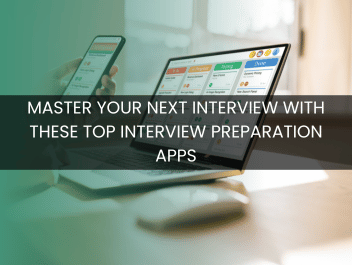



















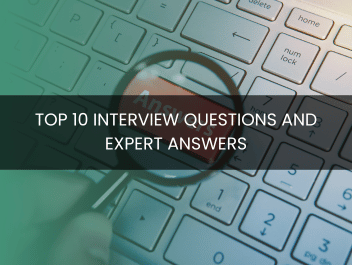



























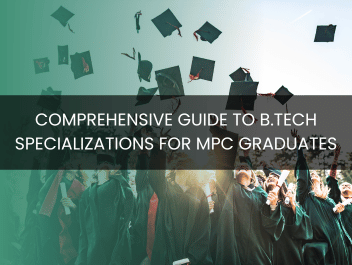






























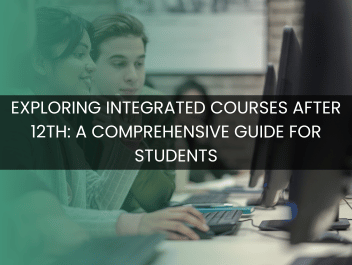






















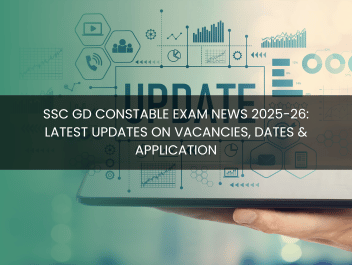


_Thumbnail_.png )
_Thumbnail_.png )








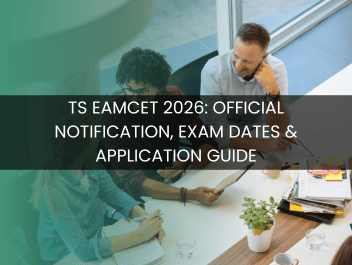
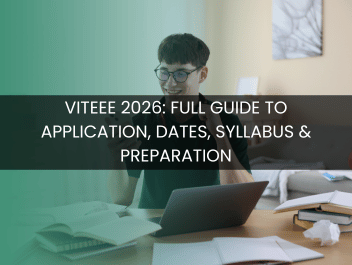




_All_You_Need_to_Know_Thumbnail_.png )
























_Thumbnail_.png )


